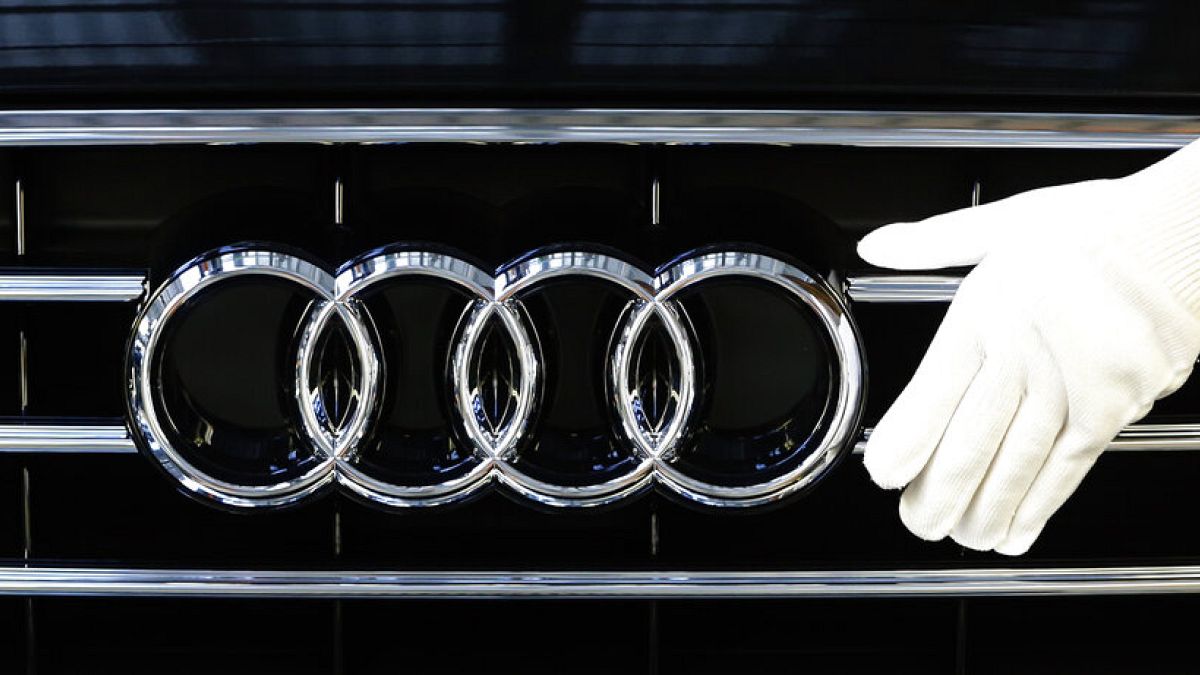Unions at Audi Brussels were shocked to learn that the flagship car model will no longer be produced at the Forest site in Brussels beyond 2025. The Belgian site currently produces the Q8 e-tron SUV, but due to declining demand and high production costs, the future of the factory is uncertain. With over 3,000 direct jobs on the line, along with several hundred subcontractors, the potential closure of the factory has left workers and unions in distress.
Workers at the plant did not return to work as scheduled, with fears that the decision to stop manufacturing the car model could lead to the closure of the entire factory. Joaquin Malpica, a logistics subcontractor at the plant since 2006, expressed his frustration at the situation, stating that he wished there were alternatives to save the site. However, Audi Brussels’ spokesman, Peter D’Hoore, mentioned that there are still possibilities to explore, such as integrating other projects at the site or producing parts for other factories.
In July, Audi Brussels announced plans to restructure the site, attributing the decision to the lower demand for the SUV and underlying structural challenges. The parent company, Volkswagen, which controls the Audi brand, is also facing challenges in Europe. The company is considering the closure of several plants in Germany, marking the first time in its 87-year history. Volkswagen’s CEO, Oliver Blume, highlighted the increasing competition from non-European players as a reason for the restructuring.
Unions at the Brussels plant are scheduled to receive more information about potential alternative projects and potential buyers on 17 September. The future of the factory remains uncertain, but there is hope that new opportunities could arise to save jobs and keep the site operational. Amidst the challenges faced by the automotive industry in Europe, Audi Brussels and Volkswagen are exploring various options to adapt to the changing market dynamics and remain competitive in the industry.
The decision to cease production of the flagship car model at the Brussels site reflects the broader challenges faced by the automotive industry in the region. With increasing competition from global players and shifting consumer preferences, companies like Audi and Volkswagen are forced to reevaluate their production strategies and operations. Despite the uncertainty surrounding the future of the Brussels site, there is a glimmer of hope as stakeholders consider alternative projects and potential buyers to sustain operations and preserve jobs.
As the automotive landscape continues to evolve, companies are navigating through turbulent times to stay relevant and viable in the market. The restructuring plans at Audi Brussels and Volkswagen signify a strategic shift in response to changing market dynamics and increased competition. By exploring new avenues and considering alternative projects, the companies are aiming to secure their positions in the industry and maintain their competitive edge in the face of challenges posed by new players and shifting market trends.
In conclusion, the decision to discontinue production of the flagship car model at the Brussels site raises concerns for the future of the factory and its employees. However, with the promise of exploring alternative projects and potential buyers, there is a ray of hope for the workers and unions at Audi Brussels. As the automotive industry in Europe faces unprecedented challenges, stakeholders are working towards finding innovative solutions to adapt to the changing landscape and ensure the sustainability of their operations. Amidst uncertainty, there lies an opportunity for transformation and growth as companies like Audi and Volkswagen navigate through the complexities of the market to emerge stronger and more resilient in the face of adversity.










